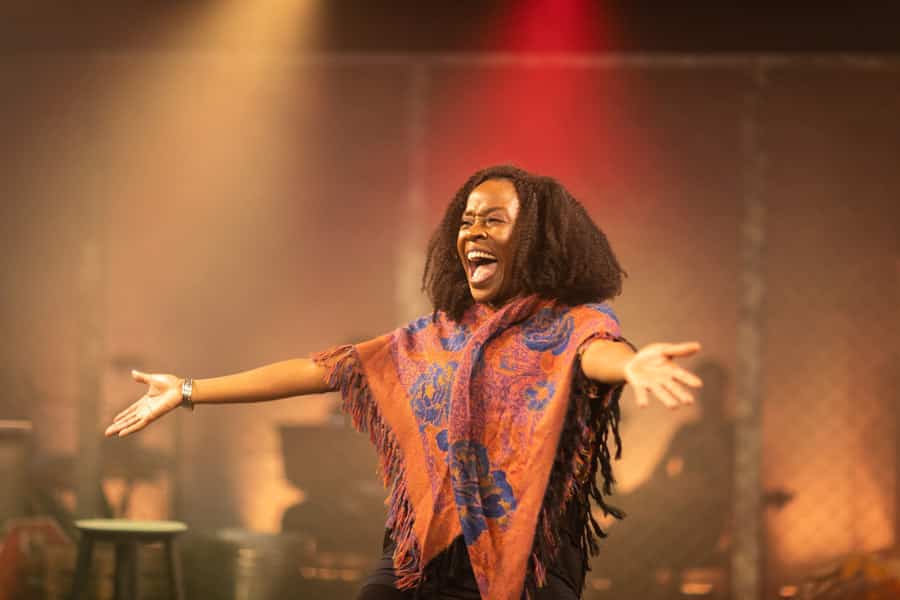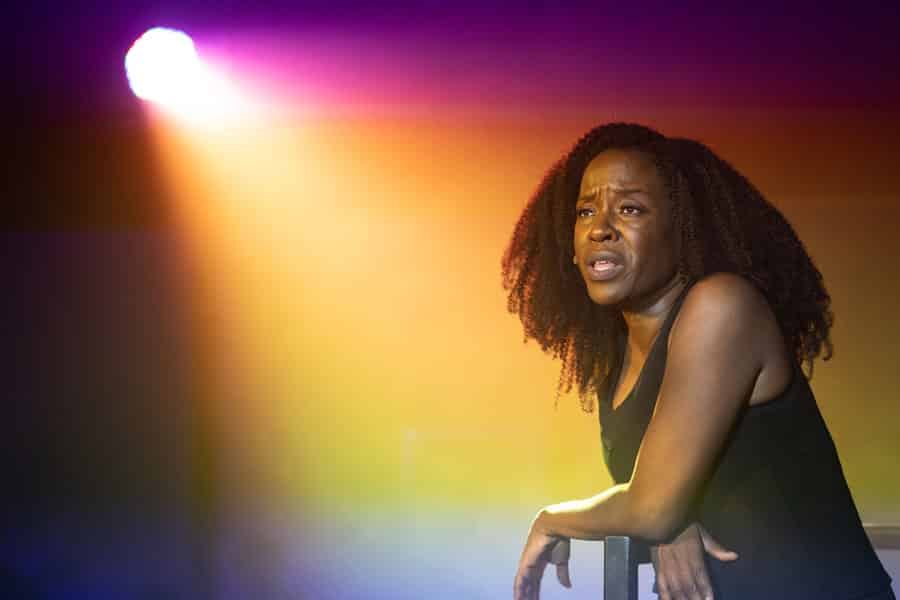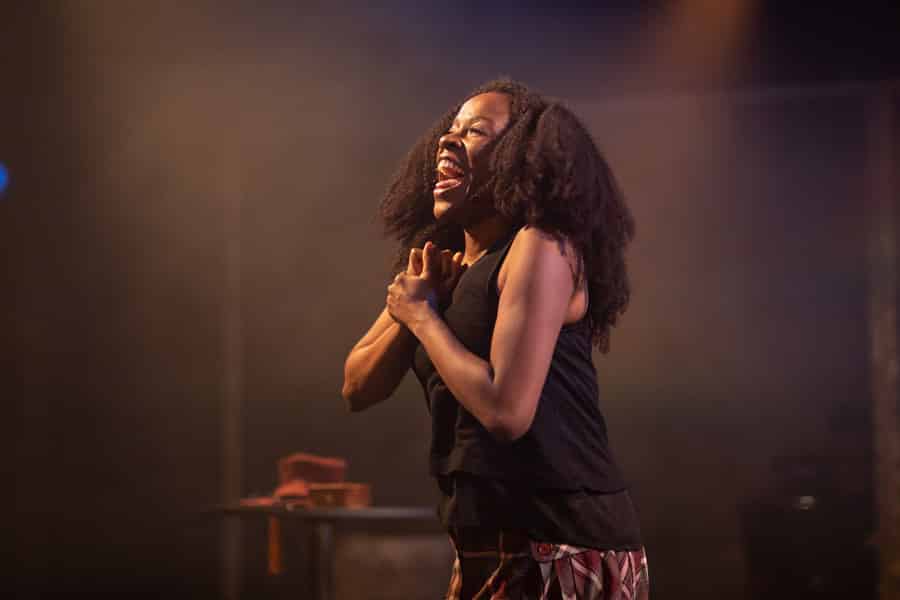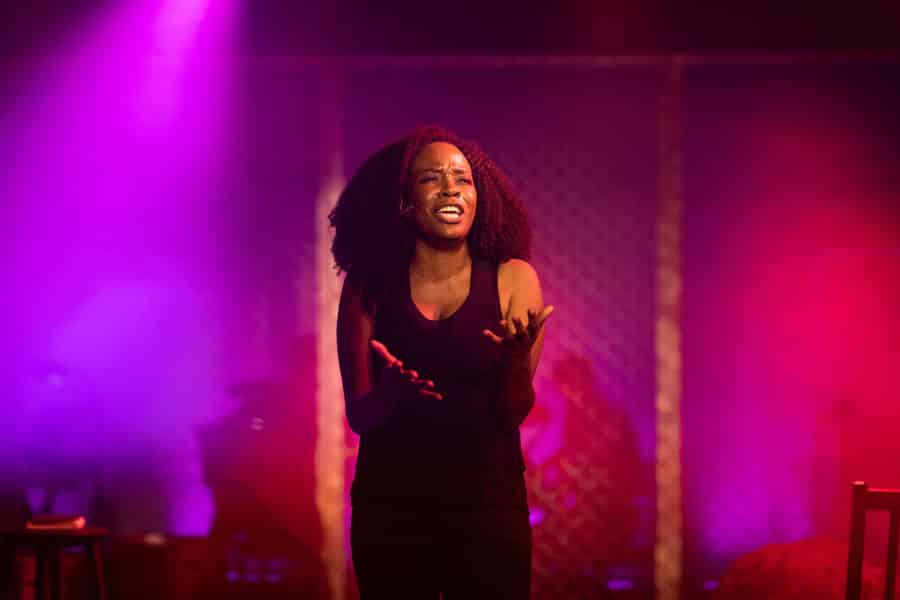Julian Eaves reviews Jeannette Bayardelle Shida the musical currently playing for a limited five-week season at The Vaults London.

Shida
The Vaults
13th September 2019
4 Stars
Book Tickets
Fresh from a run-away success and extensive tour in the USA, Jeannette Bayardelle brings her astonishingly powerful performance in this one-woman show to London for just five weeks. So, if you want to catch it, you’ll have to be fairly quick.
She is simply amazing. A brilliant actress, she takes on character after character, giving each instantly secure and memorably recognisable traits in body language, stance, expression and voice, in a virtuoso showcase of her flawless command of the stage. And then there is her vocal performance, which elevates this ingenuity to still more dizzying heights of impressive mastery. Completely in control of what her magnificent instrument can do, she moves with pin-point accuracy from one character to another, telling the story of Shida’s life from a little girl’s discovering of her ambition to write, through the many vicissitudes of life, towards an ultimately empowering and positive conclusion.

Supported by a wonderful four-piece rock band under the direction of Noam Galperin (bass, Dave Rice; drums, Jon Desbrusiais, guitar, Connor Gallagher), this is a full-throttle, sock-it-to-them show that ably reflects the energy and drive of the central character’s passionate and turbulent life (supervised by Joshua Zecher-Ross). Charlie Corcoran frames it all thinly, with minimal stage dressing, and Clancy Flynn lights it with meticulous care to find appropriate levels of illumination.
But it is always challenging to tour a show overseas. The overt emotionalism of the book – plunging head-long into intense, searing torment, and not shying away from fairly direct, even cliche-packed story-telling – may be just right for American audiences. However, I wonder if it will play quite as successfully with British audiences, who are perhaps looking for more variety in tone, with maybe a little more humour and slightly less emphasis on harrowing struggle. Not only that, Bayardelle has had considerable success playing Celie in the Broadway production of ‘The Color Purple’, and I couldn’t help but notice manifold similarities between this story and that one. Accident? I’m not sure.

There are many, many songs, and they all – inevitably – suit Bayardelle’s voice to perfection. And it is a stunning voice, too, with breath-taking range, colossal support and awesome technical dexterity. The music follows the contours of the story obediently, but there are few moments that stand out lyrically: the music feels like constant exposition, without those punctuating moments of emotional stasis, pauses in the torrent of narrative development, that really allow us ‘into’ the character. But this is, as far as I can tell, her first dramatic work, and if so it is a fabulous debut, indicative of a tremendous writing career ahead of her.
Then there is Andy Sandberg’s direction. He is clearly much of the reason behind the thunderingly resonant and brilliantly clear representation of the host of characters that the lead must either play, or intimate through her reactions, and movement and gaze. Nevertheless, there is a certain sameness in so much of what he does, that we become quickly used to his manner, and stop concentrating. Maybe, if there were a little less running around and more exploitation of different levels or uses of the admittedly limited space here, that might help? Only once does Bayardelle go down to the floor, and it is a dramatically arresting moment.

Most problematic is Chris Drohan’s sound design. Bayardelle’s voice is often swallowed by the amplification of the band, particularly when the drums are playing at full tilt, and her words can also disappear into a blur in rapid passages, which means we lose a lot of the meaning. That, again, damages our ability to hang onto the thread of what is being said, if not the gist of the simple narrative.
Be all this as it may, this is a voice that needs to be heard. We discover, right at the end of the show (or in an interview at the back of the programme), that it is ‘based on’ a true story, that of a childhood friend of Bayardelle. And yet, it is also a story of profound universal appeal and one that needs to be told. Go and see it, hear it, and join her on this journey. She is going places.
